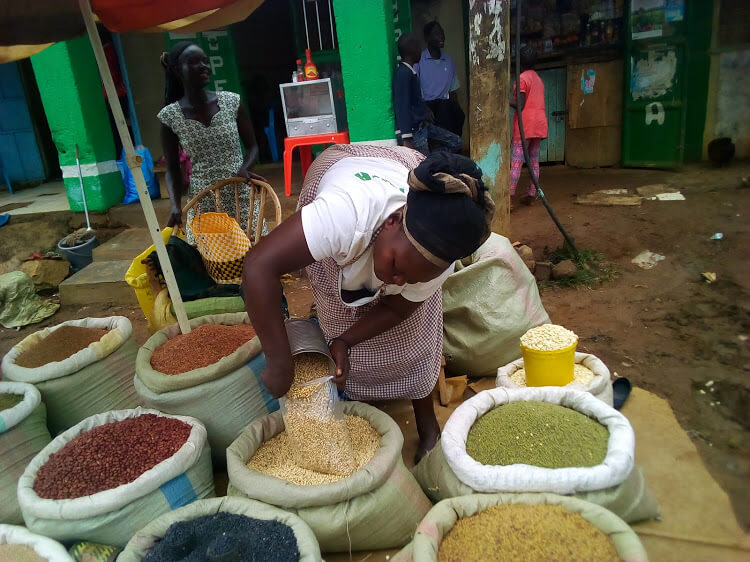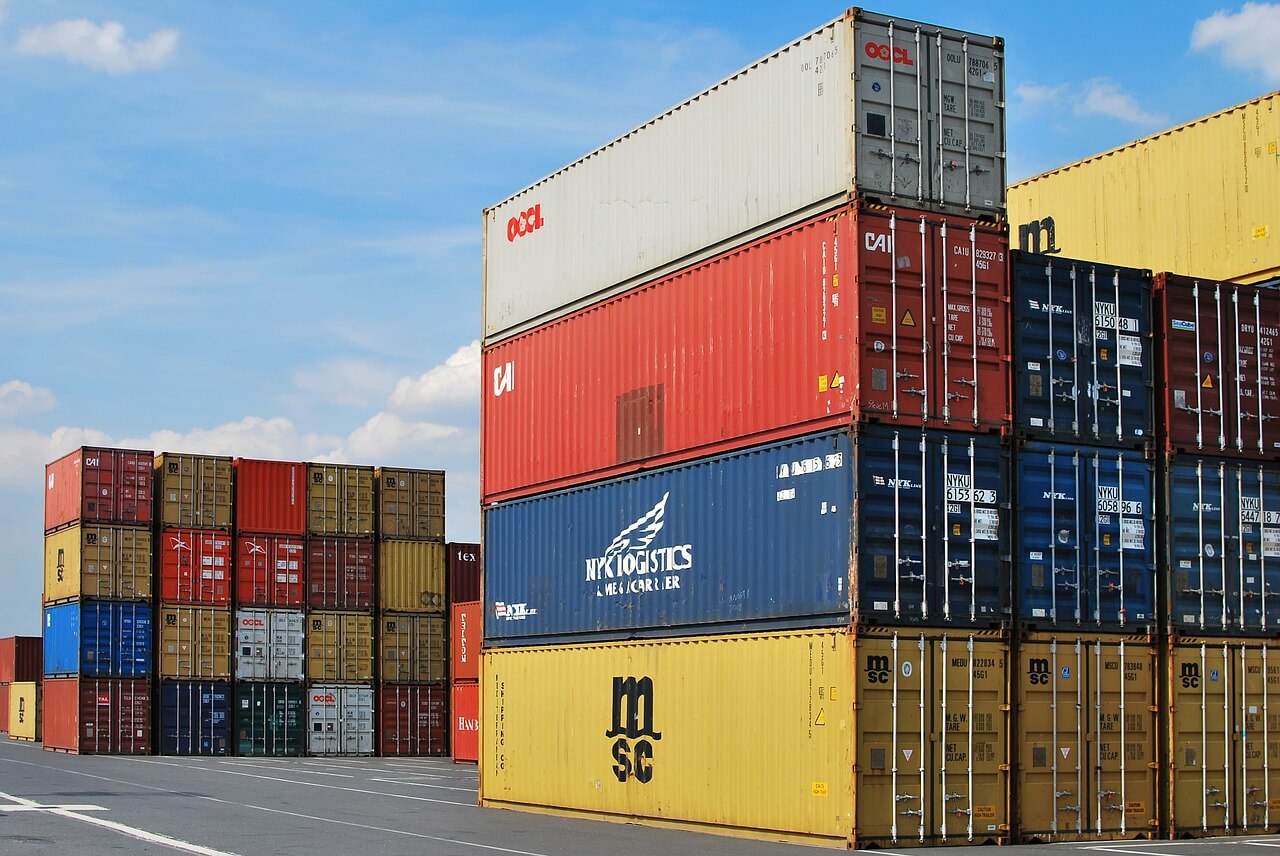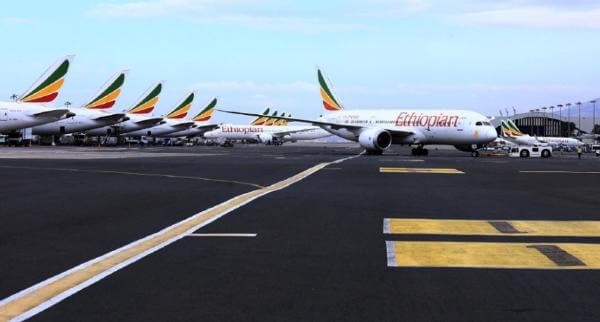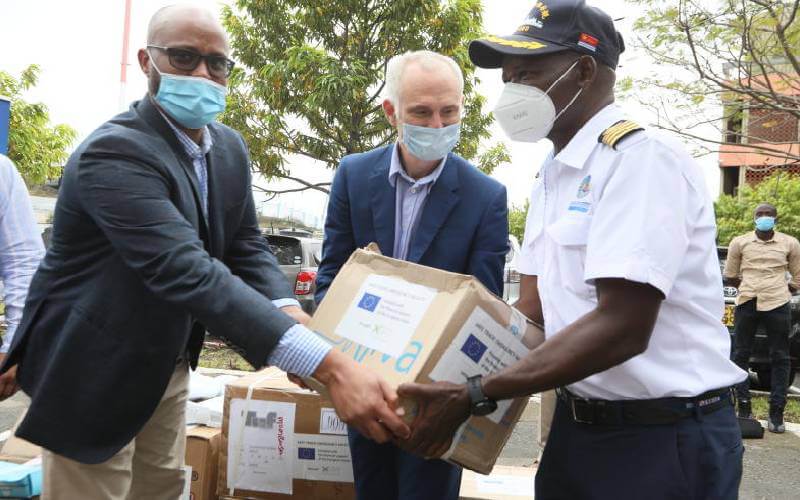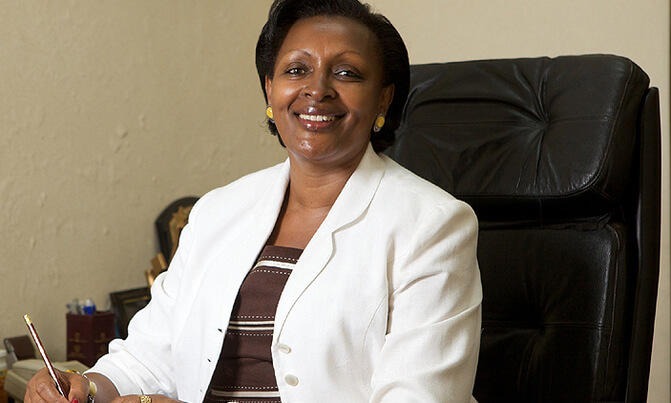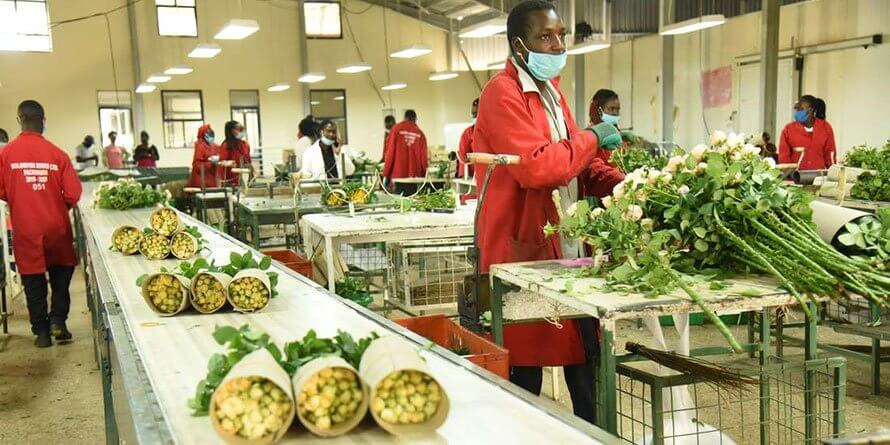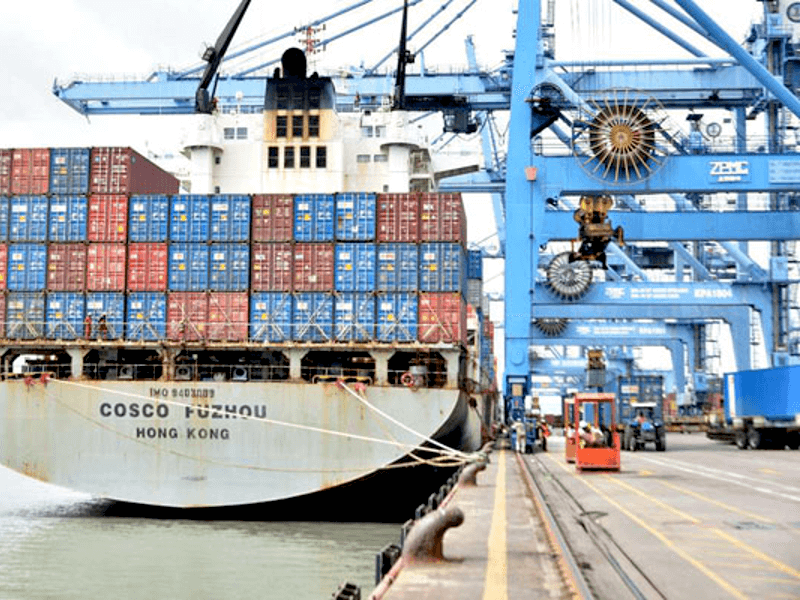In Summary Traders from both sides of the border cross over to buy and sell grains and fruits, defying Covid-19 restrictions. Many Ugandans trading in Malaba said Kenya is their primary market and they have no option but make the short trip across. Small-scale grocery and fruit traders from Kenya and Uganda have returned to business in Malaba despite a ban on cross-border movement. Traders from both sides of the border cross over to buy and sell grains and fruits, defying Covid-19 restrictions to make ends meet. Many Ugandans trading in Malaba said Kenya is their primary market and they have no option but make the short trip across. Richard Maasai, a Ugandan a wholesaler of ripe bananas in Malaba, Kenya said business has been badly hit by the border closure. “Since the border was shut, we have not been selling our stock. We have been forced to cross the border because we need money. Taking care of our families has been difficult.” Maasai said local prices for the fruit have skyrocketed due to restrictions on the Ugandan side of the border. He buys the bananas from Mbale in eastern Uganda and ferries them using friendly cargo truck drivers. Maasai sends the money to drivers to bring the goods. Once delivered, he crosses the border into Kenya where he sells during the day and returns home to Uganda in the evening. “We are appealing to the Kenyan and Ugandan governments to reopen the border. Our businesses are dying. We will...
Ugandan traders flock Kenya as virus batters border business
Posted on: September 9, 2020
Posted on: September 9, 2020

